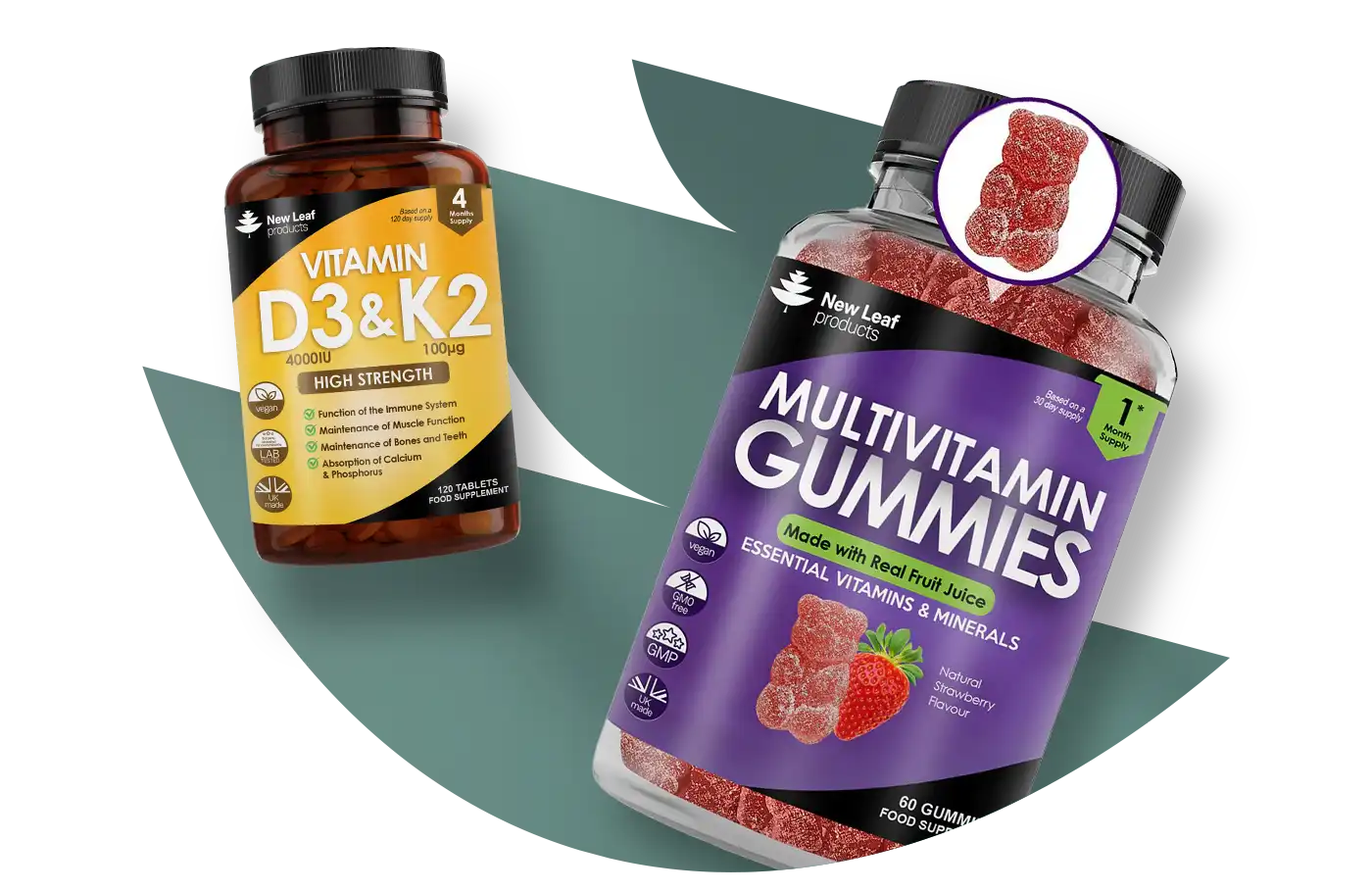
Multivitamins are a commonly taken supplement that can help improve overall health and wellbeing, prevent nutrient deficiencies and reduce risk of certain diseases. They contain vitamins and minerals essential for our everyday health such as vitamins A, C, D, E, K and B vitamins, as well as minerals such as calcium, iron, iodine, zinc, magnesium and potassium. These nutrients are vital for our health and the regulation of a number of bodily processes.
Most people can get sufficient quantities of these vitamins and minerals through eating a well balanced diet. However in some cases, it may be necessary to take a multivitamin supplement. These come in a number of forms, including tablets, capsules, powders, liquids or chewable multivitamin gummies.
Here are six important health benefits of taking multivitamins.
Promotion of good heart health
Heart disease is a leading cause of death worldwide. Research suggests taking multivitamins may help prevent heart disease and promote better heart health. Vitamins E and C in particular can help improve heart health and circulation by strengthening blood vessel walls and cell membranes, promoting wound healing, and protecting against oxidative damage caused by free radicals.
Folic acid (known as vitamin B9) and iron are crucial for the production of healthy cells and haemoglobin, which transports nutrients and oxygen to cells in the body.
Other minerals found in multivitamins such as magnesium can help keep blood pressure stable.

Protection against cancer
Some studies suggest taking daily multivitamins can reduce cancer risk. One study found a 31% lower risk of cancer in men who took multivitamins, whilst the Physicians’ Health Study II suggests multivitamins may help reduce risk of cancer in men who have a history of cancer.
Vitamins such as A, C and E are powerful antioxidants that can help prevent cell damage caused by free radicals, which can play a role in development of cancer. People with cancer and receiving treatment may also become depleted in certain vitamins or minerals. Multivitamins can help ensure levels of these nutrients remains at optimal levels for recovery.
Optimal brain function
A study on vitamins and brain function suggests a link between multivitamin use and improved memory in older adults, whilst another study suggests multivitamins may help reduce symptoms of anxiety and depression.
Vitamins and minerals are important for brain function and deficiencies have been known to cause low moods and poor psychological health. B vitamins help turn food in to fuel for the brain and are needed for concentration and memory, as well as reducing stress, anxiety and depression.
People living in countries that don’t receive much light during the winter months are often deficient in Vitamin D and are more likely to become depressed. This vitamin is essential for nervous system and brain function. If these aren’t function well enough, our psychological wellbeing and memory formation is negatively impacted.

Good eye health and vision
As we age, our eye health deteriorates and our vision becomes worse. Age-related macular degeneration is a common cause of blindness worldwide. Research suggests multivitamins containing antioxidants may help prevent this disease or slow its progression. Multiple studies have also found a link between multivitamin use and reduction in risk of eye diseases such as cataracts.
Vitamins A and E are necessary for healthy vision and the ability to see in low light. Ensuring these vitamins aren’t lacking is important for good eye health and to prevent vision deterioration.

Healthy looking skin
Vitamins are essential for healthy skin and help prevent wrinkles, dry skin and sun damage.
Vitamin D is crucial for creating healthy skin cells and helps skin appear more toned. Vitamin C is found in the inner and outer layers of skin and is involved in the production of collagen, which keeps skin looking young and firm. Along with vitamin E, it can also enhance the effectiveness of sun creams by decreasing cell damage caused by UV rays, promote healing, and repair dry skin.

Boost immune system
Vitamins and minerals play a vital role in keeping us strong and healthy and supporting our immune system. As we get older, or if we have a poor diet, our immune systems can weaken. Taking multivitamins daily can help boost our immune systems and help us fight off viruses and disease.
As vitamin C is an antioxidant, it helps protect against oxidative stress which can impair our immune systems and make us susceptible to illness. It also is important for the function of immune cells to help protect against infections such as the common cold.
Vitamin D regulates levels of calcium and phosphorous which are involved in immune health, and can help protect against respiratory infections in particular. Zinc, vitamin A, B6 and B12 are also essential nutrients for the production of immune cells to fight off viruses and diseases.
If you are considering taking multivitamins, it is important to think about what form to take them in that will suit you best. Our vegetarian, gluten-free, chewable gummies are perfect for those who want to take a multivitamin supplement, but have difficulty swallowing - particularly young children. These gummies are packed full of essential vitamins and minerals that support good health, and taste great too.



